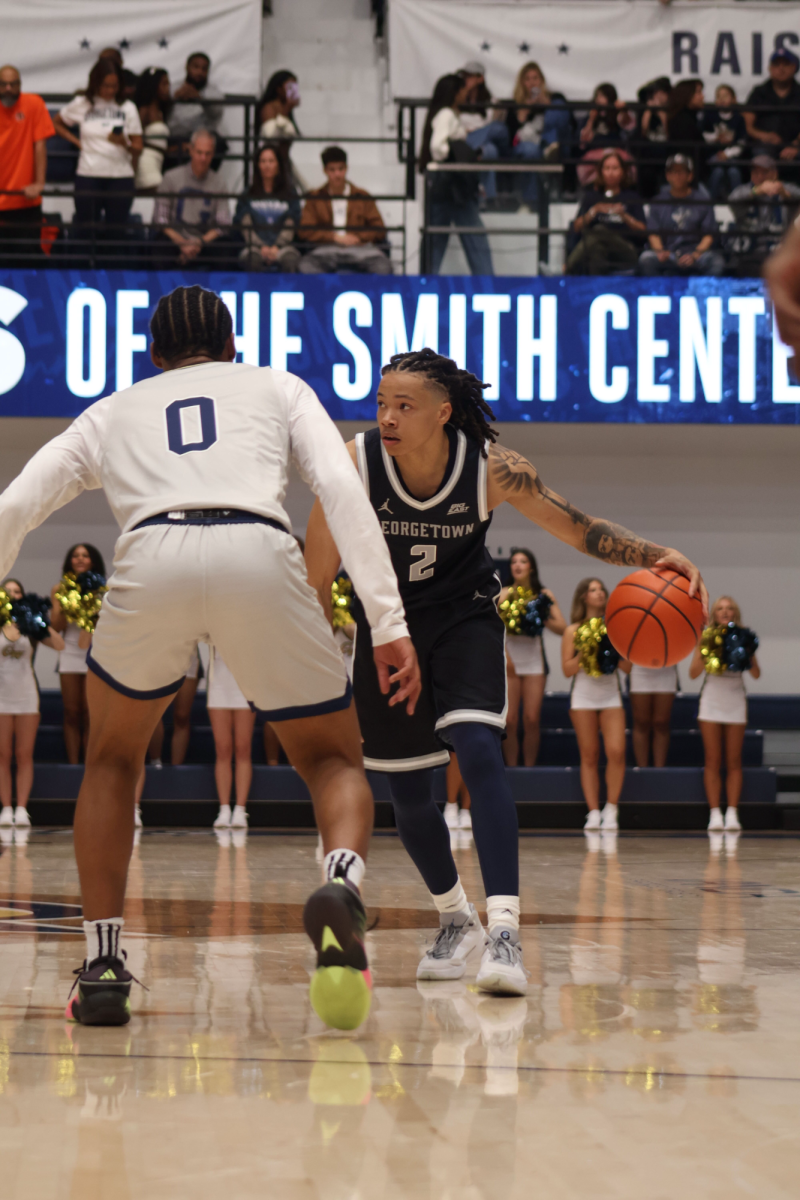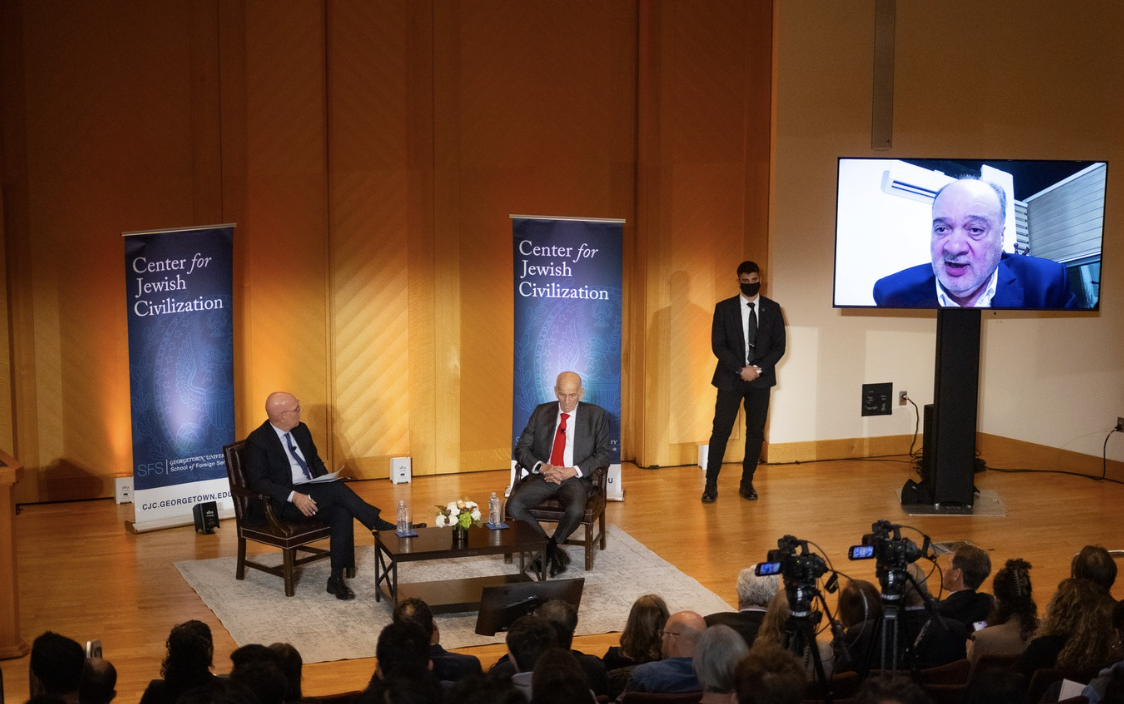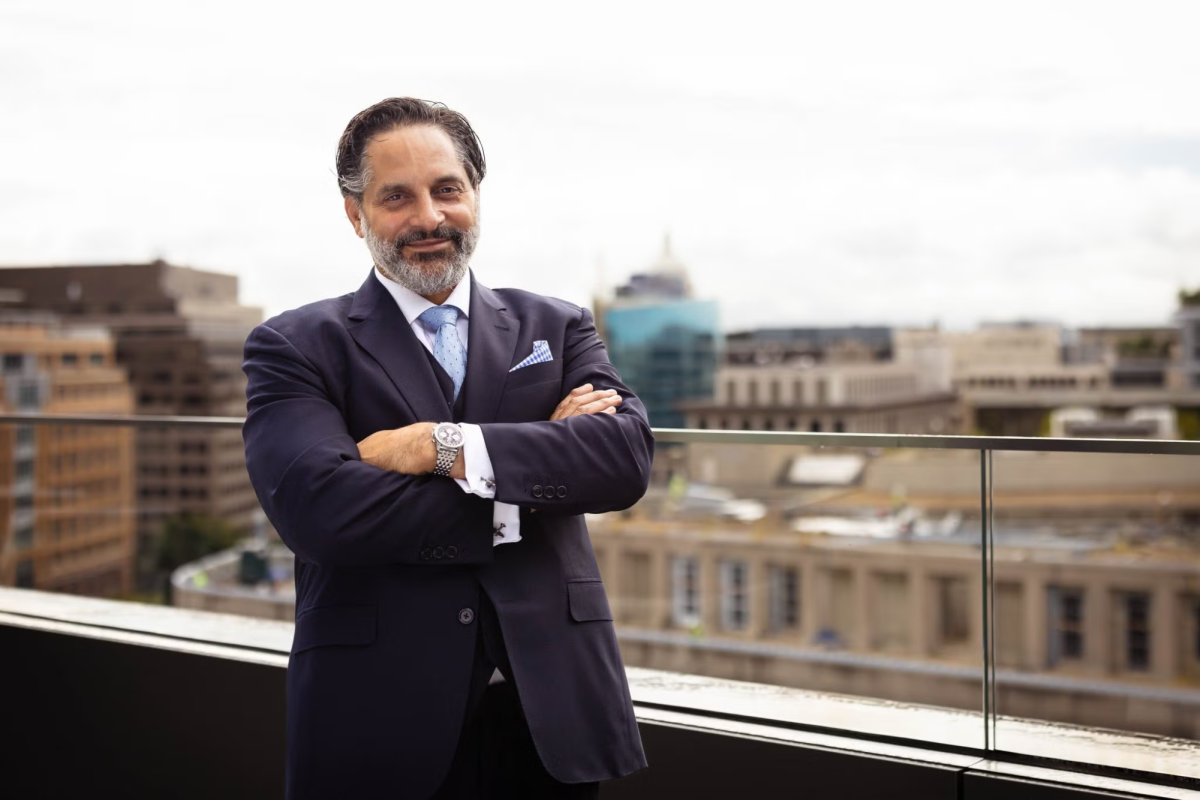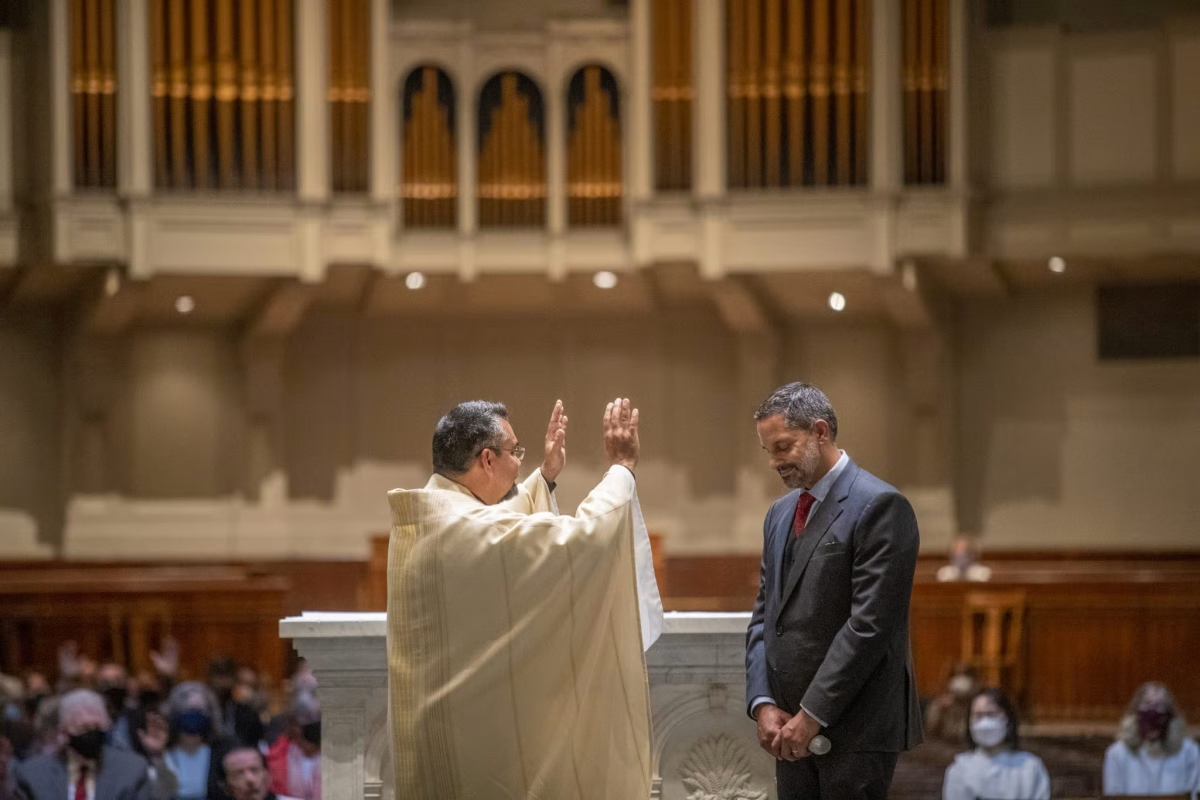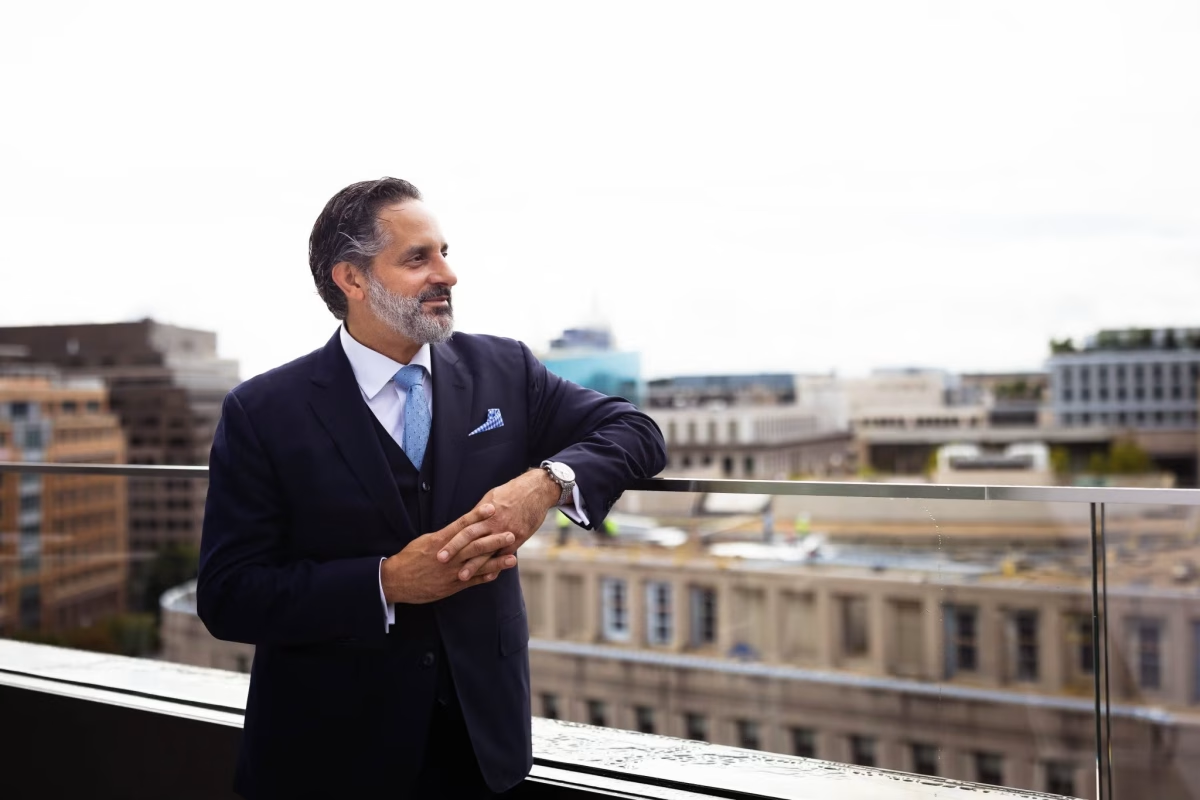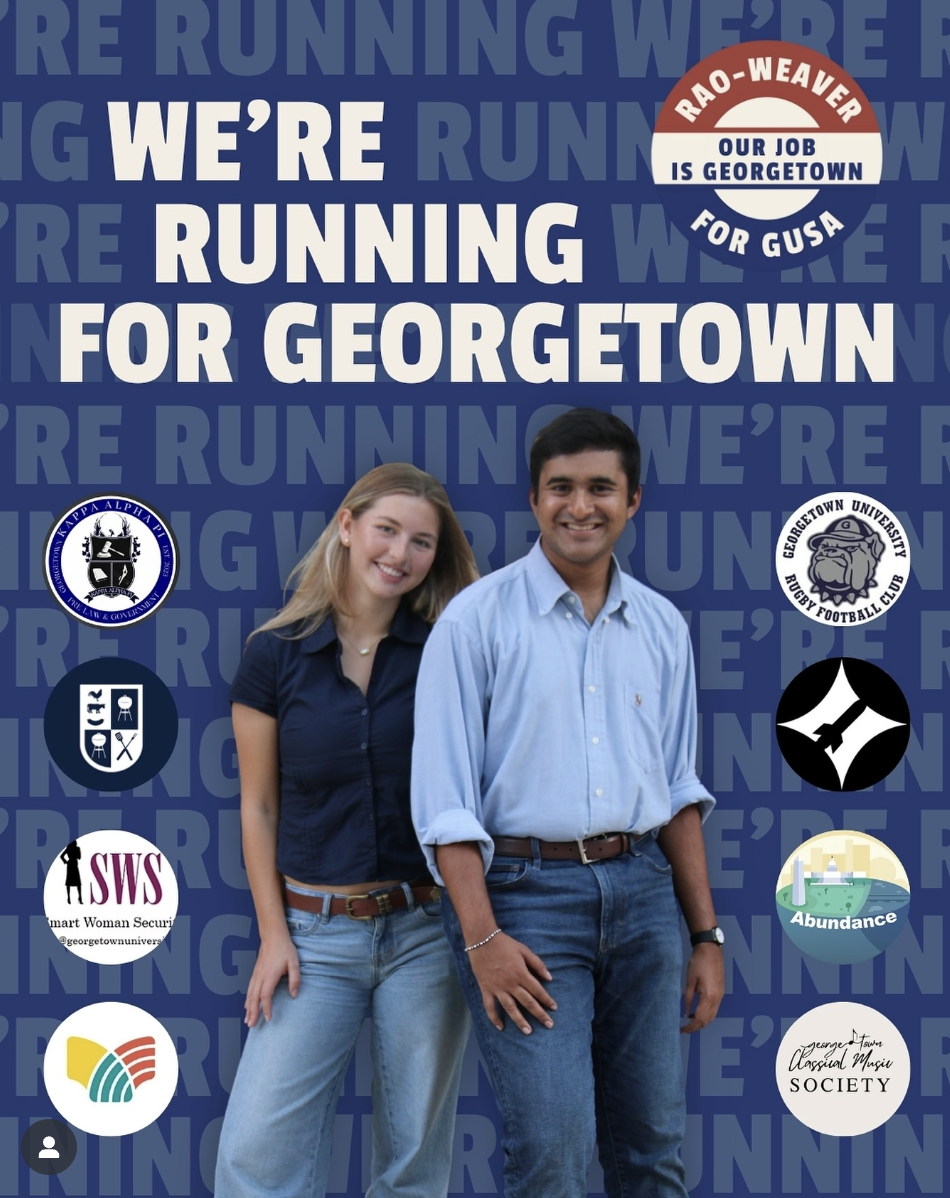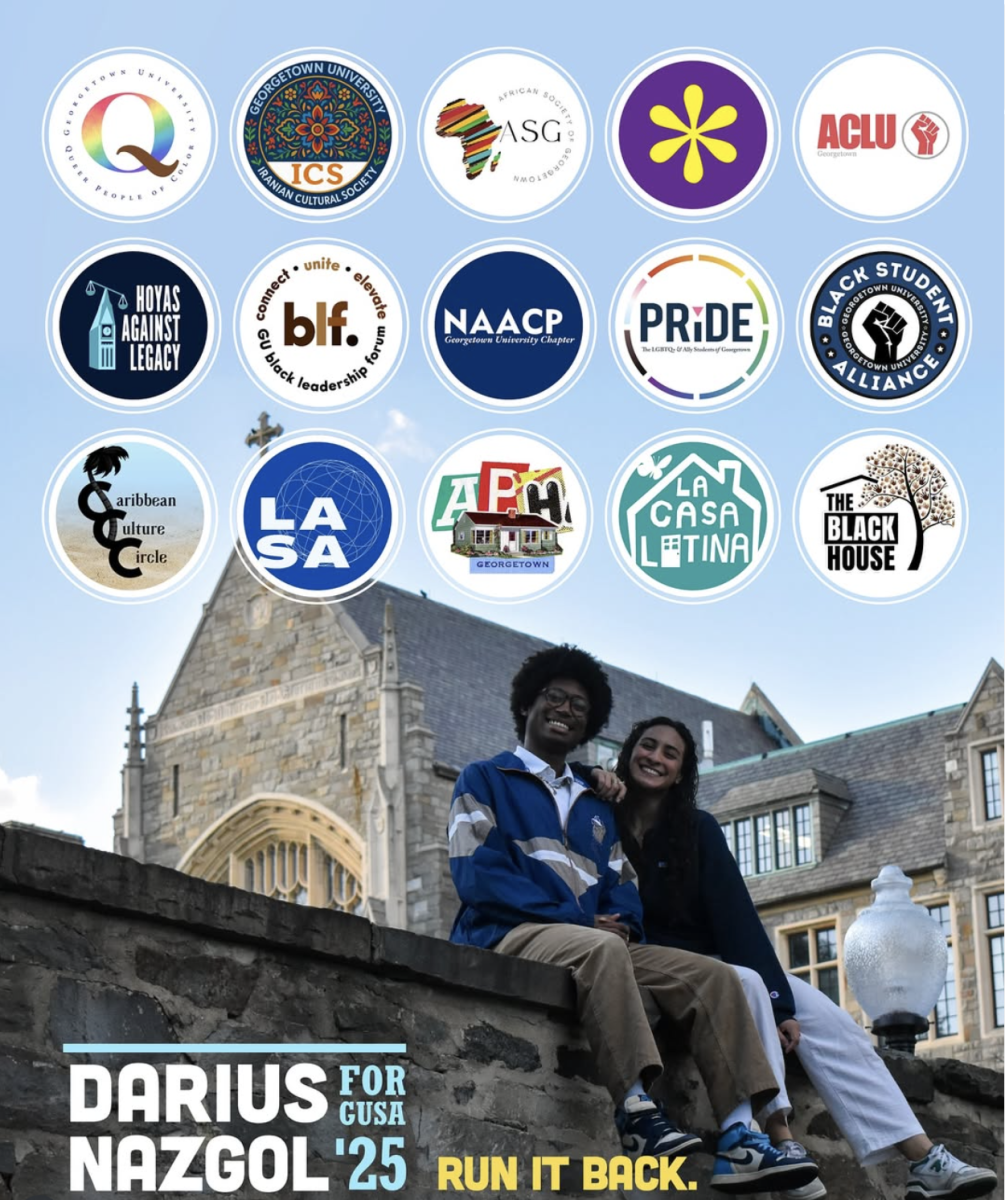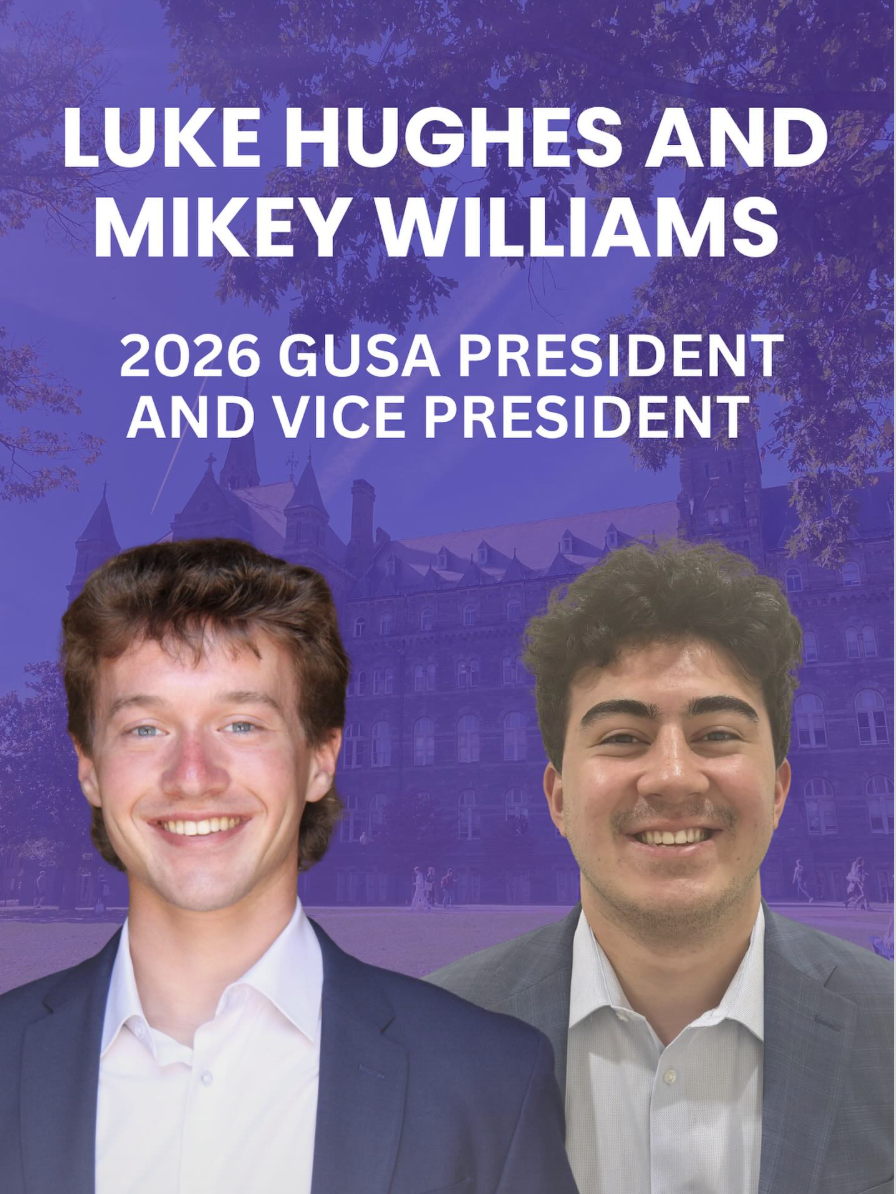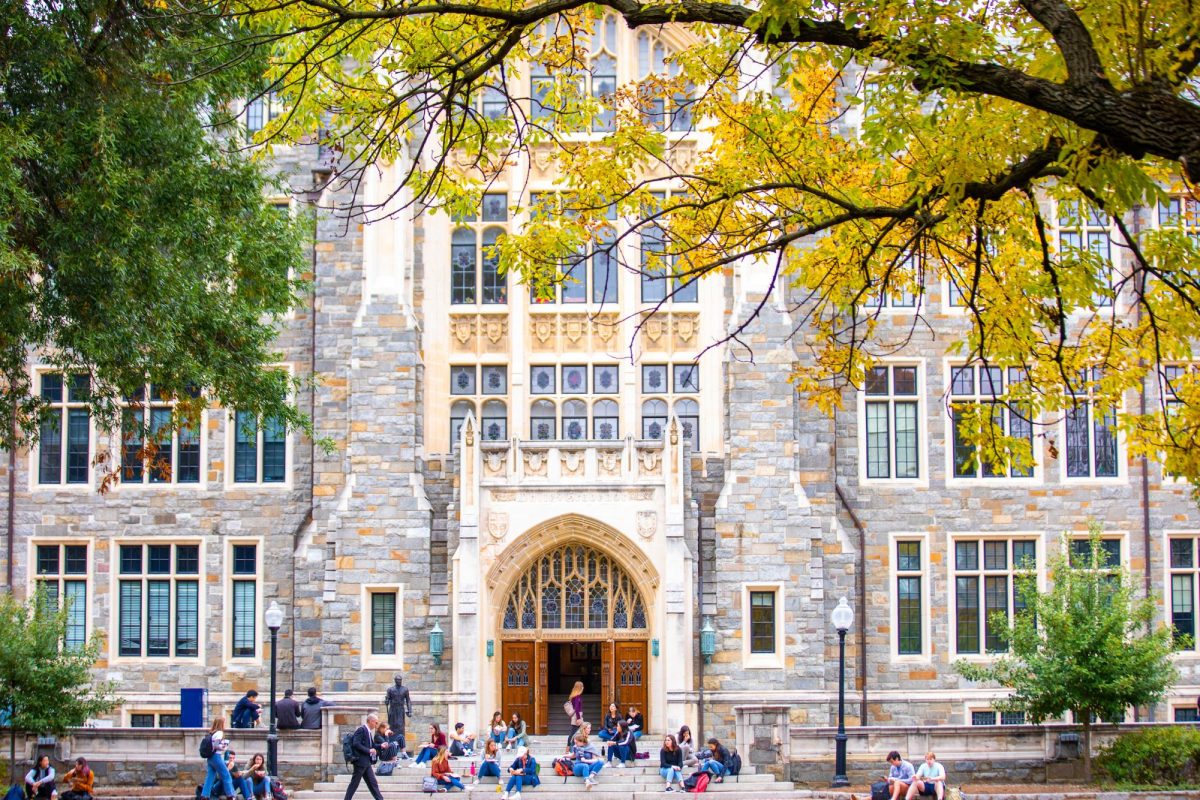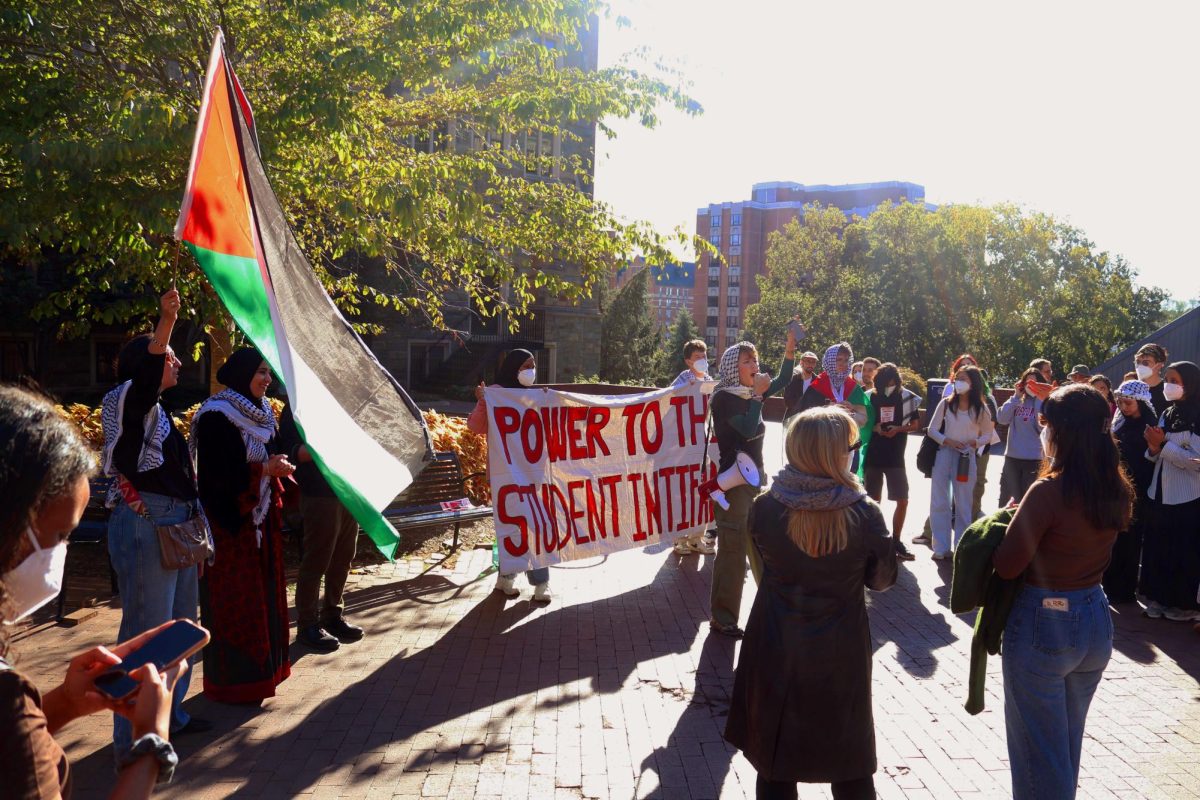Formerly detained Georgetown University postdoctoral researcher Badar Khan Suri asked a federal appeals court Sept. 26 to reject the government’s request to redetain him.
According to a Sept. 29 press release, Khan Suri’s legal team pressed the 4th Circuit Court of Appeals to uphold a lower court’s May 14 ruling releasing him from detention while his immigration case proceeds. Though Khan Suri reached a settlement to reinstate his legal immigration status in August, the federal government’s case to deport him is ongoing.
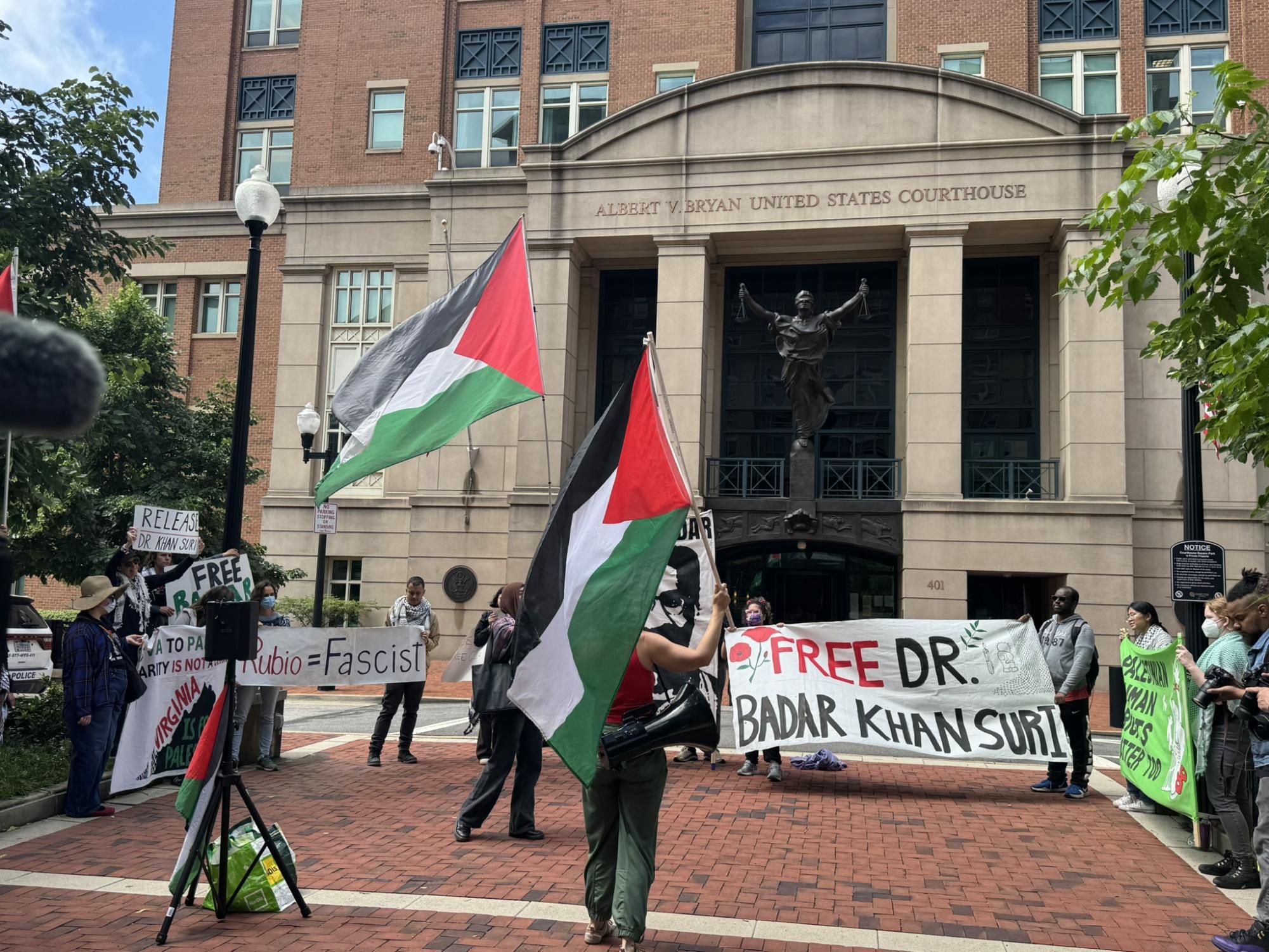
In a press release from the legal nonprofit representing him, the American Civil Liberties Union (ACLU), Khan Suri said being detained again would be disruptive and unjust.
“My children need me, my wife needs me, my academic community and students need me, and my research requires my full focus,” Khan Suri said in the release. “I humbly submit that I should not be punished for something I did not do, nor should I be made a tool for political gains — whether by the groups who initiated these attacks or by those who amplified the smear campaigns against me.”
Federal immigration officials detained Khan Suri March 17, alleging he was a threat to U.S. foreign policy. U.S. Immigration and Customs Enforcement released Khan Suri May 14 from a detention facility in Alvarado, Texas, following a federal judge’s ruling that his detainment unconstitutionally targeted him for protected speech and familial associations, violating the First Amendment.
In early July, the 4th Circuit denied the government’s motion to immediately redetain Khan Suri while his case against the government proceeds.
Nico Cefalu (CAS ’27), president of Georgetown’s ACLU chapter, said keeping Khan Suri out of detention is essential for the university’s commitment to academic freedom.
“It’s a symbol for our academic freedom here on campus,” Cefalu told The Hoya. “Obviously if the Trump administration is successful in silencing one academic, they’ll take that as an example to keep going after other people, and people here will take note of it. There’s a chance of self-censorship and the chilling of free speech in general occurring because of this.”
Noor Zafar, senior staff attorney at the ACLU’s Immigrant Rights Project, said in a press release Khan Suri’s detainment was unconstitutional and never should have happened.
“The government’s argument essentially boils down to the sweeping assertion that it can use immigration laws to silence speech it disagrees with and no federal district court has authority to review the constitutionality of its actions,” Zafar said in the release. “This dangerous and unprecedented argument not only chills Dr. Suri’s and his family’s speech but that of other noncitizens who seek to speak up in support of Palestinian rights. We are asking the court of appeals to reject this frightening proposal.”
A U.S. Department of Homeland Security (DHS) official testified in federal court in July that immigration officials investigated Khan Suri’s research, teaching and pro-Palestinian advocacy — but not his personal life — when deciding to detain him. In a Sept. 30 ruling in that case, a federal judge found the federal government had unconstitutionally targeted pro-Palestinian protesters for protected speech, including Khan Suri.
DHS did not respond to a request for comment.
Nader Hashemi — director of the Alwaleed Bin Talal Center for Muslim-Christian Understanding (ACMCU), the academic group Khan Suri works for — said Khan Suri’s continued legal battle represents a threat to democratic values.
“Badar has committed no crime,” Hashemi wrote to The Hoya. “He’s an innocent man. He’s being targeted because he’s on a visa and he is married to a Palestinian. If Badar’s rights can be denied, then who is next? This is how authoritarian regimes proceed to consolidate power. They first go after the easy targets and when they receive no push back, their appetite increases, and more innocent people are then arrested and incarcerated.”
Khan Suri is currently teaching one Georgetown course, “Majoritarianism and Minority Rights in South Asia,” according to GU Experience, an internal platform for students and faculty.
Khan Suri said he will not change his advocacy and academic research despite the federal government’s efforts to deport him.
“Throughout my career, I have been a small but consistent voice for the inalienable rights of oppressed people facing occupation and inhumane practices,” Khan Suri said. “I have done so out of a sense of justice and humanity, and I intend to continue in that spirit. I firmly believe that there is nothing wrong in standing for human dignity and compassion.”
Arik Levinson, an economics professor who donated to an April fundraiser for Khan Suri, said that although he was unaware of the specifics of Khan Suri’s current legal battle, the case represents a fight against arbitrary detention.
“It’s not just important for Georgetown to make sure a colleague is treated fairly and legally,” Levinson wrote to The Hoya. “It’s important for all Americans to make sure that people are not arbitrarily detained by masked representatives of the federal government as a consequence of protected free speech.”
In the August settlement, federal officials agreed to reinstate the profiles of Khan Suri and his children on the Student and Exchange Visitor Information System (SEVIS), which manages international community members’ information. The government also agreed not to terminate the legal statuses of Khan Suri or his children unless new information becomes available on an “independent legal ground.”
Maurice Jackson, a professor of history and Black studies who has attended rallies in support of Khan Suri, said Khan Suri deserves to remain in the United States to continue his scholarship free from discrimination.
“Badar Khan Suri is an honorable man: a dedicated scholar, husband and father and humanitarian,” Jackson wrote to The Hoya. “He has violated no laws or ethical norms. He has every right to remain here ‘in the home of the brave and the land of the free.’ And like so many of us, who are not white, he ought not be discriminated against because of his color, nationality, religion or social beliefs.”
Khan Suri said he hopes the circuit court upholds the May ruling so he can continue to teach, study and be with his family.
“I place my faith in this honorable court, with the hope that my rights will not be suspended, that justice will prevail, and that I will remain free to fulfill my responsibilities to my family, my students and my community,” Khan Suri said.
This article was updated Oct. 2 with new information.


